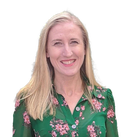I am child-free and happy. Why does that offend you?
When Australian model Ellie Gonsalves shared a satirical list of 118 reasons not to have kids, people queued up to monster her. So tell me, please, writes Louise Slyth – what’s so abhorrent about someone choosing not to be a parent?


Your support helps us to tell the story
From reproductive rights to climate change to Big Tech, The Independent is on the ground when the story is developing. Whether it's investigating the financials of Elon Musk's pro-Trump PAC or producing our latest documentary, 'The A Word', which shines a light on the American women fighting for reproductive rights, we know how important it is to parse out the facts from the messaging.
At such a critical moment in US history, we need reporters on the ground. Your donation allows us to keep sending journalists to speak to both sides of the story.
The Independent is trusted by Americans across the entire political spectrum. And unlike many other quality news outlets, we choose not to lock Americans out of our reporting and analysis with paywalls. We believe quality journalism should be available to everyone, paid for by those who can afford it.
Your support makes all the difference.When Australian model Ellie Gonsalves shared her 118 reasons to remain child-free with her 1.2 million Instagram followers, her reasons ran from the universal, to the unusual, to the unlikely. To her absolute credit, Gonsalves did say that her list was partly satirical: one detailed post-partum hair loss, another that “your vagina will be different”.
She even said she was worried in case the child grew up to become a bully (or a rapist). “No sex for six weeks after birth” and “they may kill their twin in the womb” were two other memorable additions.
Yet, more interesting than the list itself, was the rush with which people queued up to monster her; and the inevitable backlash against what’s often seen as an “alternative lifestyle”.
I am child-free – and happy. I can relate to her methodology. In my mid-thirties, when I couldn’t decide what to do about motherhood, I wrote a list of pros and cons. There were lots of cons, mostly practical or financial, and only two pros, both emotional. They were “I’d fit in with all my friends” and… “joy”. The first told me a lot about the society we live in, and the second felt like a risky basket in which to place my eggs, and a nebulous reason to become a mother.
I’d like to think that we live in an accepting society, where “you do you” means exactly that. Sadly, we don’t. To be truly raw and unguarded feels incendiary, because when child-free women like me speak out, we are often shamed for it. Heaven forbid a woman gets to enjoy living a child-free life!
For many people, being a parent is a fundamental part of their identity, it’s not just a role or a facet of their life, it is who they are. So, I can understand why for some people, my choice just doesn’t compute.
Where Ellie divided the crowd was in the way she shared her child-free story. She evidently has many reasons for not wanting children, and it’s her right to share them in the way she chooses and through the medium of her choice. Yet in my experience, most child-free women don’t think that motherhood is a bad decision, it’s just a bad decision for them.
There must be some child-free women who just don’t like children, but I’m not one of them. I’m not a natural with toddlers (the control freak in me struggles with the chaos) but I love a chubby thigh as much as the next person, and I relish seeing little people grow into interesting humans. There are a whole range of reasons why I didn’t become a mother, but I don’t feel the need, or the obligation, to share them.
When I write about not having kids, I do it because I hope to foster more understanding for a life choice that isn’t the norm but is growing in popularity. Around one in five women now reach their forties without having children, and of those, only a small number are child-free by choice. We are a minority within a minority.
I speak up so that other women in the same position feel less alone. I speak up because when I was young and in the thick of “the baby years”, there were no role models I could turn to. At the time, I was the only one in my friendship circle who didn’t have kids, and it was difficult on so many levels. I had no tribe or sisterhood to help me navigate the choppy waters of “otherhood”.
Yet whenever I do, I’m inevitably faced with unfiltered venom. Earlier this year, I expressed my view that child-free women are self-aware, rather than selfish. Naturally, there were people who had strong opinions about my choices.
There are some nasty people out there who delight in telling me that my life is pointless and unfulfilled. In my opinion they are ones who fear change, or who need their heteronormative lives to be validated.
The abuse is varied but always runs on similar themes. Apparently, my life has no meaning. I will surely face a lonely old age. By all accounts I’m “too ugly to have children” and have done the world a favour.
These kinds of comments on a public forum could seriously damage a woman’s mental health. Yet this is par for the course when you’re child-free. When Chelsea Handler posted her tongue in cheek “a day in the life of a childless woman” video, it went viral and like with Ellie, the backlash was vicious. Anyone who puts their child-free head above the parapet seems to get shot down pretty quickly.
Thankfully, for every troll, there is a woman who reaches out to me to tell me what sharing my story meant to them. The opinions of bitter strangers mean nothing to me, but the opinions of these women mean everything.
For me, the haters are missing the fundamental point. Regardless of whether you can relate to Ellie, she and other child-free women like me shouldn’t face abuse just for voicing a very valid life choice. A choice which does not (or should not) threaten any of the people who have or want children. My choice not to procreate in no way invalidates anyone else’s choice to do so.
For us fortunate women in the Western world, motherhood is a choice. But socially, it’s still an expectation. Having the right to take a different path has been centuries in the making, and having it fully accepted is still being hard won.
Join our commenting forum
Join thought-provoking conversations, follow other Independent readers and see their replies
Comments